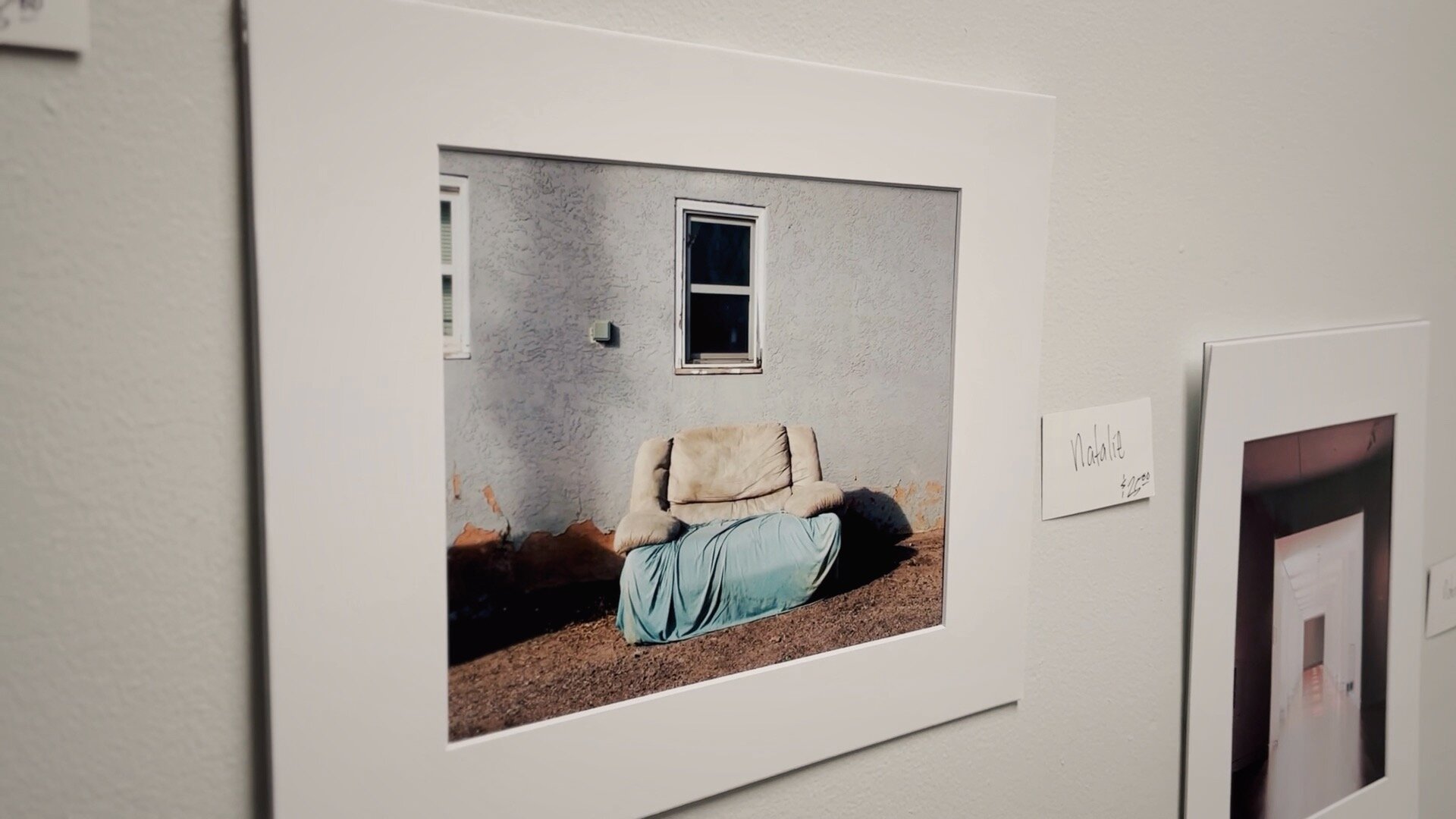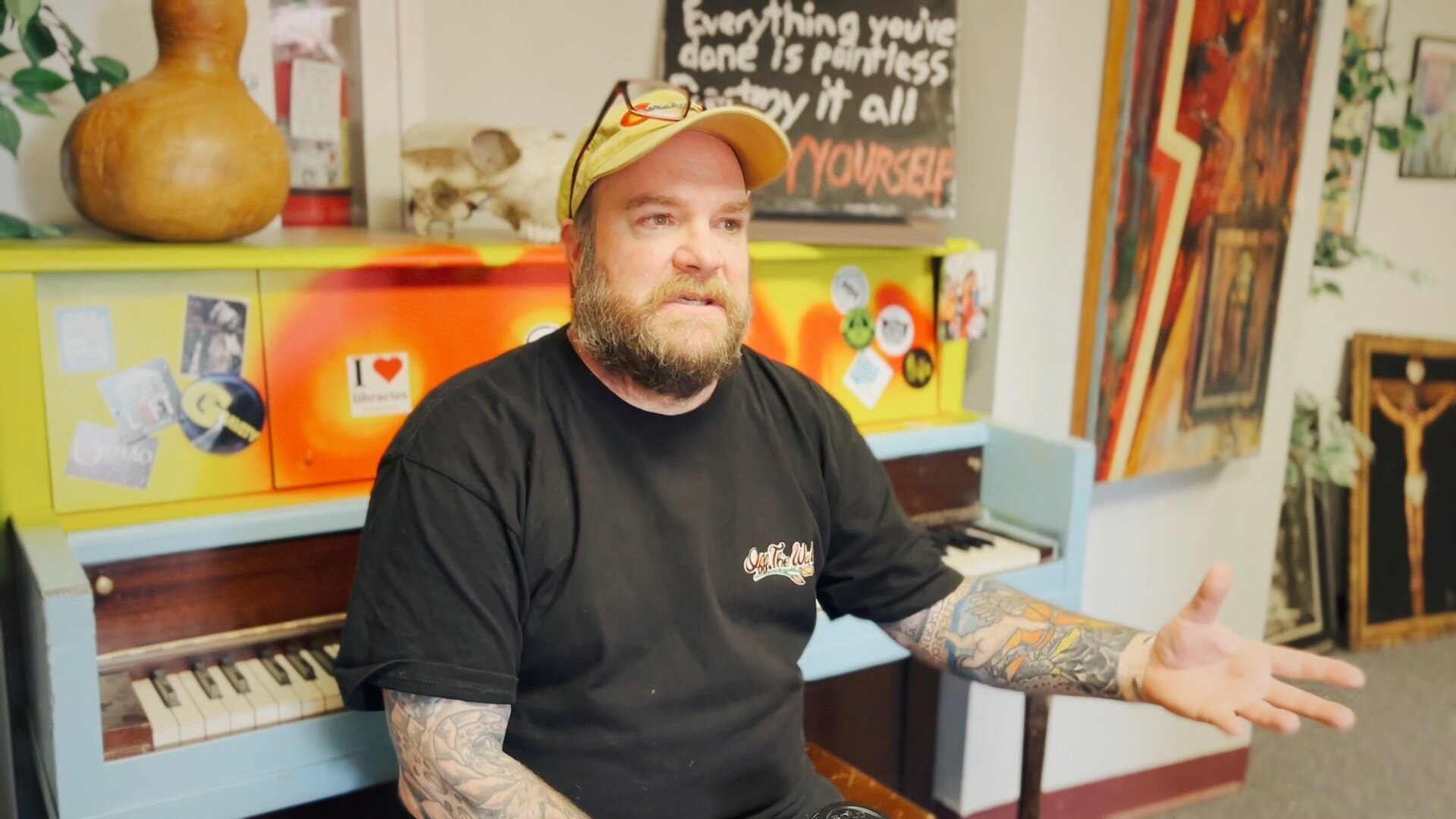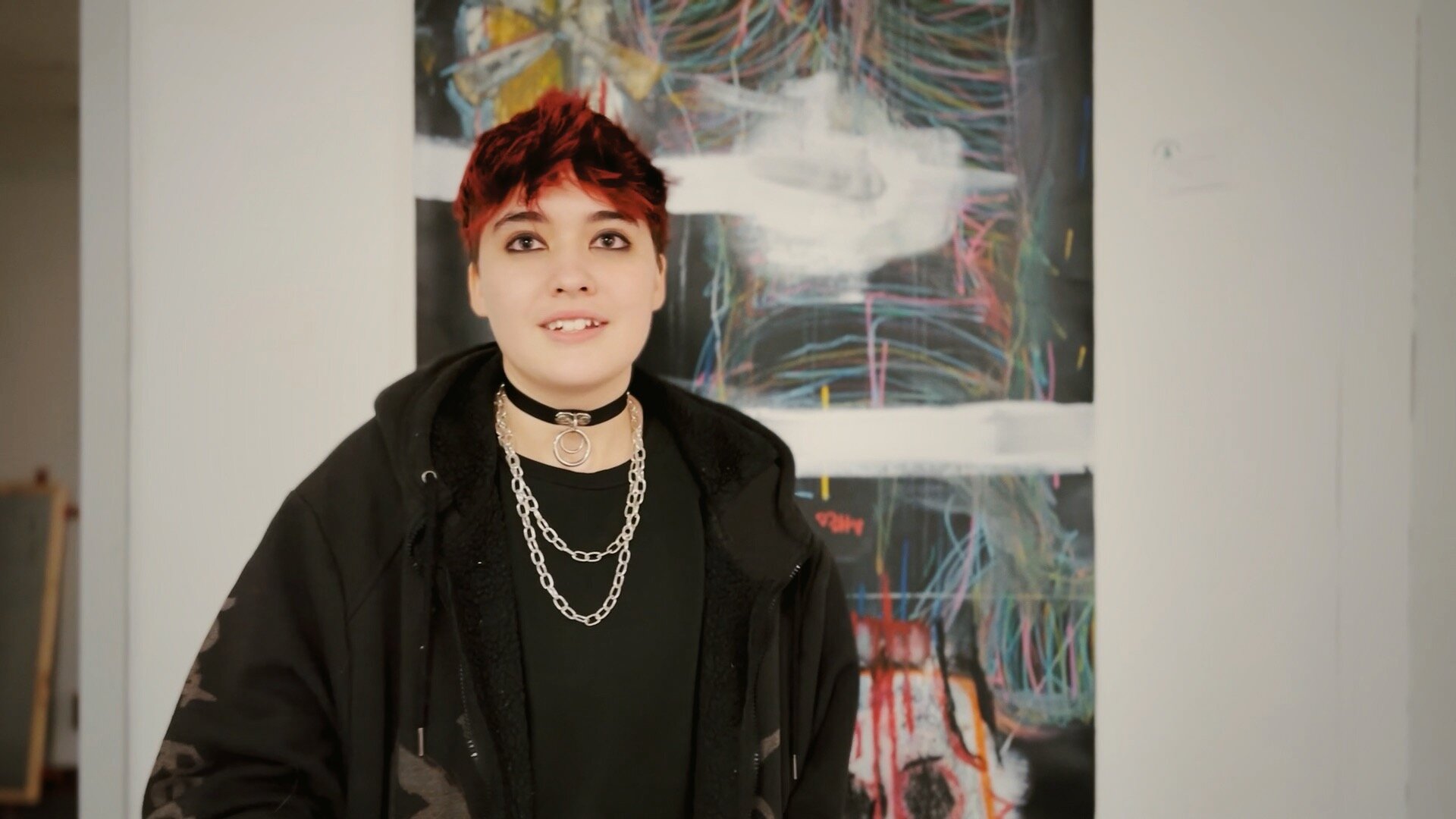An addiction counselor transformed a school basement into an art gallery to support students

COLORADO SPRINGS, Colo. — As a substance abuse crisis erodes personal and community health, educators and students are navigating the everyday impacts, and looking for solutions.
“It’s probably safe to say that the majority of our students have some kind of addiction,” said Brian Tryon, student advocate, certified addiction counselor and photography instructor at Community Prep School, an alternative high school in Colorado Springs School District 11.
After 13 years in education — six of those at Community Prep — Tryon observed the cumulative effects of students’ personal, familial and generational addictions as “a huge thing,” affecting every aspect of their lives. The consequences are compounded, he said, by the heightened isolation, grief, loss and uncertainty of the COVID-19 pandemic.
Cory Notestine, the executive director of Student Success and Wellness for District 11, said youth today are living through a mental health crisis.
[Related: How Colorado youth are utilizing the state's free mental health service]
“Our district has seen an increase in the number of suicide assessments being completed, increased levels of grief, and increased aggression within behavior,” he said. “We’ve also seen an elevated increase in illegal substance use.”
District 11 is urging parents to talk to their children about the dangers of fentanyl amidst what they are calling "an epidemic” of synthetic opioid use.
To support and anchor his students at Community Prep, Tryon created a darkroom in the school’s basement in 2018.
“We had this space down here, and it kind of became a hiding spot for students with different trauma or anxiety, or who just didn’t want to go to class,” he said, adding that he noticed shy or socially strained students naturally congregating in the basement.
The following year, he expanded the photography curriculum into a classroom that serves as a working art studio, including manual and digital photography course work, photo editing, matting and framing stations and business tutorials.
This year, Tryon took his program even further by creating an in-house gallery, known as the Garfield Gallery, for the students' work to be shown to the public.
Tryon’s observation dovetailed with a personal dream to invite the greater Colorado Springs community into the school. Along with input from students and artists from the area, he conceptualized a space to showcase student work alongside the work of local professionals. Since opening in March, The Garfield Gallery has exhibited local artists Jon Francis, Kevin Persaud, and Maria Fetterhoff. Other local artists are booked in the space a year in advance, Tryon said.

By adding curation and gallery management to the repertoire of academic offerings, Tryon said students “learn a hobby, a career — or just to have a voice in a platform.” Local artists can also show what opportunities exist in the art world after high school, he said.
“That was something I loved about the art exhibit — was seeing people compliment my work,” said Community Prep School photography student Nat, who displayed work for the monthly First Friday art opening. “It just felt awesome.”
“Here, students have a place where they don't have to fear anything,” Tryon said. "They're respected, they're loved, and they're able to be a part of something really cool and creative. I’m always blown away by the talent these students have that they don't feel like they have.”

Tryon said fentanyl crept into the student population around the start of the pandemic, though it wasn’t immediately apparent while school was taking place online.
“Once we started getting back into the school, we started seeing that stuff,” he said. “It’s everywhere. It's really traumatic. Some of these kids have lost three, four, five, six different friends. It's becoming almost like it's desensitized now.”
“Deaths from fake prescription pills laced with fentanyl are surging across the country — and right here in our school district,” explained Devra Ashby, chief communications officer for District 11.
At least three students in the district lost their lives to fentanyl this school year, Ashby said.
“They are teenagers who had hopes and dreams, and plans,” Ashby said. “These teenagers had families who loved them and are still coming to grips with their losses.”
For Tryon, the goal is to make sure students graduate, but to do that, they need to feel safe.
Building relationships and creating a safe, non-judgmental space for his students “starts with the trust factor,” he said. In teaching art as a practice of mindfulness, “students learn they have another option. It’s helped them in, ‘Oh, I didn't use today, or for an hour, because I went and photographed something.’’’
Community Prep School photography student Seraph said he has taken Tryon’s class “three or four times. The full year, I've been in his class,” he laughed. “I think Brian is an amazing person. He's so cool. He's helped me through a lot of s—.”

Tryon started his career in education as a custodian in a nearby high school. “I came out of my own addiction and was getting in recovery. I wanted a ‘real job,’" he said. “I started building relationships with students. I started getting this passion. I felt, ‘I can offer more.’”
He became a campus supervisor and worked with social workers and counselors who, witnessing his connections with students, brought him on for support. Tryon eventually “found a place here,” he said of Community Prep. “I found a heart here.”
Engaging in visual art and photography were crucial to Tryon’s own recovery, he said, and helped him to “overcome a lot of different things.”
“Addiction is just a symptom,” Tryon said. “There’s more. There’s something that made someone get to that point. We need to understand why. Why are you there? Why are you doing this? It usually comes out that there's generational trauma.”
Alongside a tool box of artistry, Tryon holds certification as an addiction counselor. “But that only comes when people are ready,” he said.
“You have students that come back and say, ‘Man, you saved my life,’” Tryon said. “It’s that seed that got planted. There's more losses than wins in this job — but the small wins are giant.”
If you or a loved one are facing addiction, or for more information, please visit this list of resources.
Kate Perdoni is a multimedia journalist with Rocky Mountain PBS and can be reached at kateperdoni@rmpbs.org.